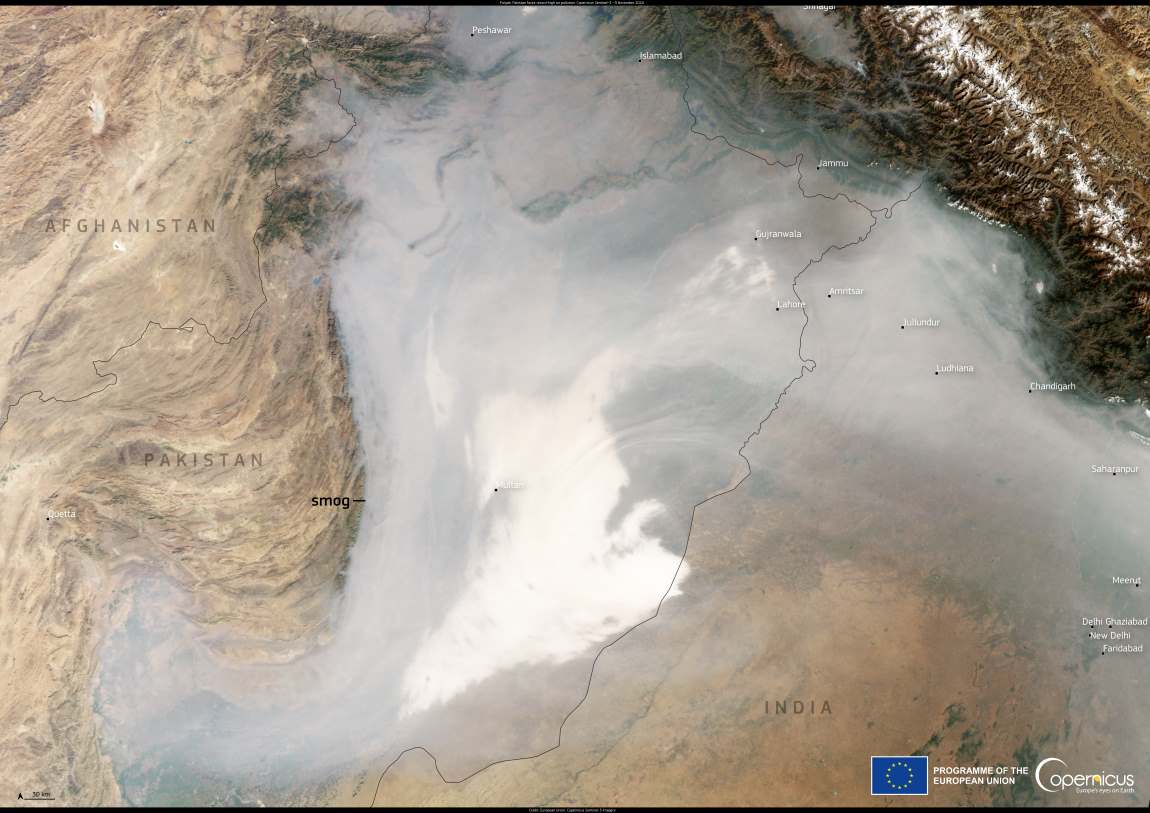Severe air pollution is a common issue in South Asia in the autumn and winter, occurring when cold air traps dust, emissions, and smoke from fires. Authorities in the Pakistani province of Punjab have ordered schools in several areas to close until 17 November 2024, shifting to online classes to protect children from hazardous air pollution.
Punjab, home to over half of Pakistan’s population, has already imposed restrictions on some primary schools, tuk-tuks, and barbecue restaurants in Lahore, where air pollution has reached record levels. Health officials have reported a rise in respiratory issues as a consequence of the air quality.

This image acquired on 9 November 2024 by one of the Copernicus Sentinel-3 satellites shows smog over parts of Pakistan and northern India.
Air quality monitoring and forecasting is one of the main focuses of the Copernicus Atmosphere Monitoring Service (CAMS). Its free and open data enables better decision-making for improved public health outcomes. Additionally, the Copernicus Health Hub is a one-stop shop for all Copernicus environmental data and products related to health, including those related to air quality.
Featured image credit: European Union, Copernicus Sentinel-3 imagery




